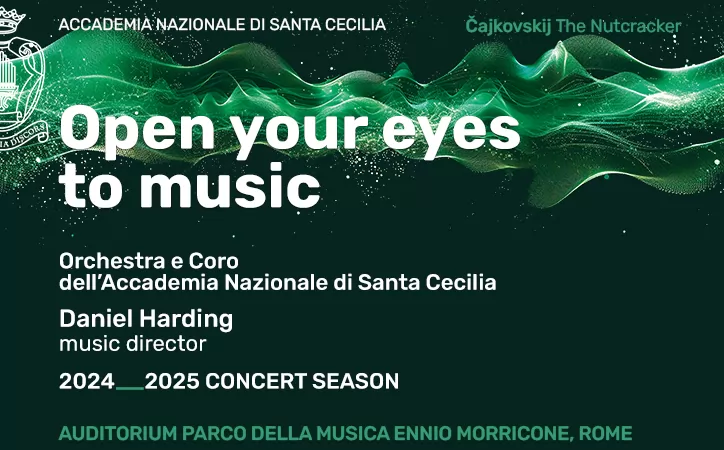Foreign cultural academies and institutes.
l An exhibition by German Barbara Camilla Tucholski might never have taken place after more than 100 drawings were stolen from a minibus while the artist was giving a tour to students in November 2004. However, the art scholar at the Casa di Goethe overcame the setback and continued her work, which was influenced by Goethes Italian Journey. The result is over 600 small pencil designs, depicting both old and new Rome: squares, churches and motorini.
Tucholski, born in Pomerania in northern Germany in 1947, describes the work as akin to taking a walk with Goethe, revisiting the same places as the author and artist did at the same time of year. She also shares his liking for the unconventional, working without preliminary study and disregarding traditional designs of Rome.
The inauguration is on 23 June (19.30). The exhibition moves to Tucholskis homeland next year, with an exhibition at the Goethe-National Museum in Weimar, Germany.
23 June-2 Oct (10.00-18.00). Mon closed. Casa di Goethe, Via del Corso 18 tel. 0632650412, www.casadigoethe.it.
l Audiences should not expect an easy ride as they view the work of Jacek Malinoswki at the Polish Cultural Institute. Malinowski, one of the leading video-artists in Poland, sets out to disorientate viewers; he makes us doubt if we are watching fact or fiction, then compounds this by also forcing viewers to question their attitudes to those in the films.
A perfect example is Half a Woman, the story of a woman suffering from a disease which causes a gradual disintegration and loss of the lower part of the body. As the camera follows her day-to-day life, she is asked why she agreed to this documentary because Im beautiful is her direct response. It is initially unclear whether this is a genuine documentary, and viewers are also left thinking about their own feelings towards people seen as different, along with wider questions of judgement on a womans body.
Until 24 June (14.00-18.00). Polish Cultural Institute, Via Vittoria Colonna 1, tel. 0636000723, www.institutopolacco.it.
lPulitzer Prize-winning author Frank McCourt visits the American Academy on 14 June (18.00) to discuss The Art of Writing. The authors acclaimed biographical work depicts his childhood and beyond in Ireland and the United States. This event will however fascinate readers from the whole international community, who admire McCourts ability to evoke his experiences of growing up in the midst of poverty.
His memoir, Angelas Ashes, which narrates his return from his New York birthplace to Ireland in the 1930s when he was four, was on the New York Times best-seller list for 117 weeks, has been made into a film and won the author the Pulitzer Prize for biography in 1997. His follow-up book, Tis, A Memoir, tells of his return to the United States when he was 19, and it also went on to be a best-seller, winning him numerous awards.
American Academy, Via A. Masina 5, tel. 0658461, www.aarome.org.
l The Austrian Cultural Forum is extending a party invitation to celebrate the coming of summer. The Festa DEstate will include an exhibition of paintings by, among others, Austrian and Italian artists. Traditional Austrian food will be served at the free event, which takes place at the Cultural Forum on 24 June (19.00).
Austrian Cultural Forum, Viale Bruno Buozzi 113, tel. 063608371, www.austriacult.roma.it.
l Visitors to an exhibition by Luis Gonzalez Palma can discover why critics have hailed him the most important photographer in Central America.
The event organised by the Italian Institute for Latin America features 20 photographs dealing with issues such as the sidelining of peoples cultures, against the social and political backdrop of Guatemala.
Palma, born in Guatemala in 1957, has said that he comes from a very racist country. The Indians are a marginal people just like I am a marginal person in the first world. So I try to balance things.
Palma will be displaying some works in the reddish-brown sepia style of early photographs, others in gold and resin.
The event runs until 25 June at Galleria dellIILA in Scuderie di Palazzo Santacroce, Vicolo dei Catinari; it forms part of Romes annual photography festival.
Italian Institute for Latin America, Piazza Benedetto Cairoli 3, tel. 06684921, www.iila.org.
l Anarchy, murder and love are the explosive ingredients behind one of Kiju Yoshidas most-celebrated films.
Eros and Massacre tells the story of Japanese anarchist Sakae Osugi murdered by police in 1923 and his relationship with three women. One of these women almost claimed Osugis life before the police got there, as she tried to kill him in a tea room in 1916.
The film is being shown on 7 June (19.00) by the Japanese Cultural Institute as part of a celebration of Yoshida and his wife, actress Mariko Okada. The couple are two of the most important figures in postwar Japanese film; Okada, star of many of Yoshidas films, is arguably the most celebrated actress still working in the nations film industry.
Japanese Cultural Institute, Via A. Gramsci 74, tel. 063224754, www.jfroma.it.
l Devotees of James Joyce can pay homage to the great Irish author at events to mark the 101st anniversary of Bloomsday.
The anniversary celebrates Leopold Bloom, the protagonist of Joyces classic novel Ulysses, whom readers join for a day in Dublin on 15 June 1904.
The main event, organised by the Irish Embassy, is on 15 June (19.00) and features a lecture by Irish author and Joyce expert, Professor John McCourt.
Caff Greco on Via Condotti, renowned as a former, favourite haunt of Joyce, will host a series of readings on 16 June (10.00); celebrations are rounded off with lunch at the Old Marconi pub (13.00) in Via S. Prassede on the same day.
Numbers for the McCourt lecture are limited; to confirm attendance and for more details on all the events, call the embassy on the number below.
Irish Embassy, Piazza Campitelli 3, tel. 0669791217, www.ambasciata-irlanda.it.




















